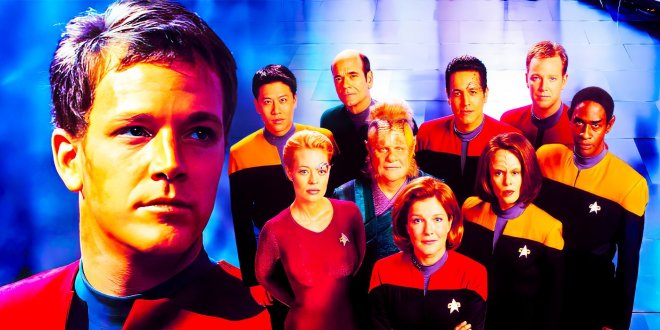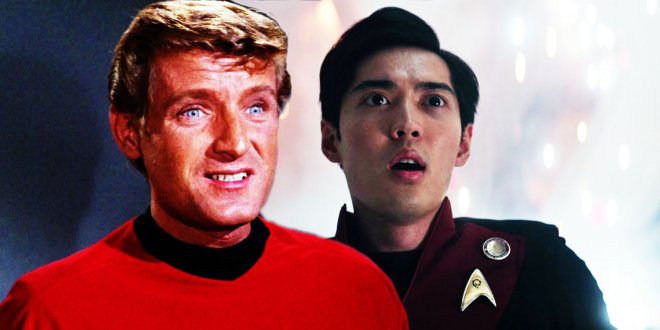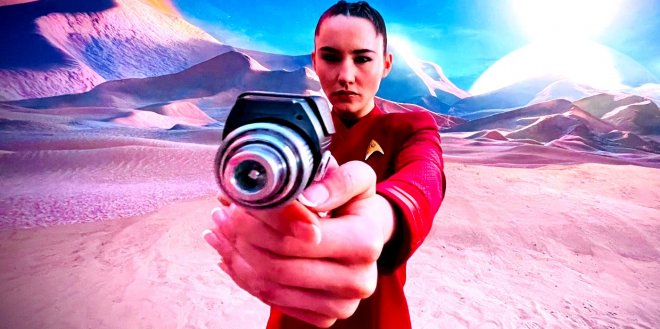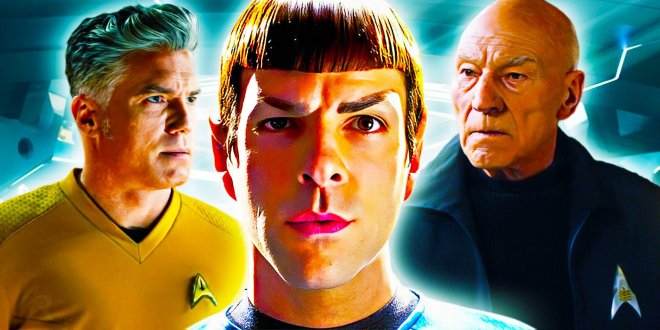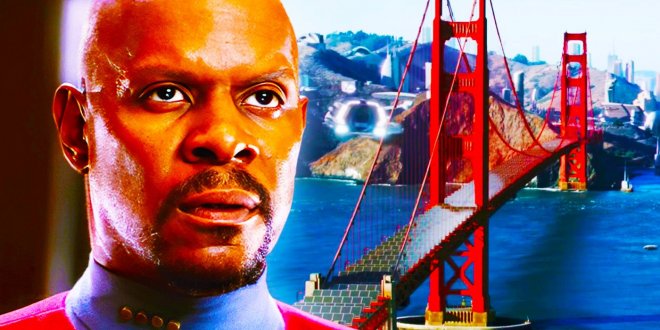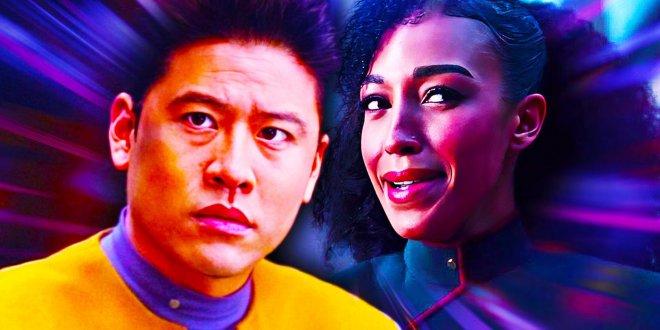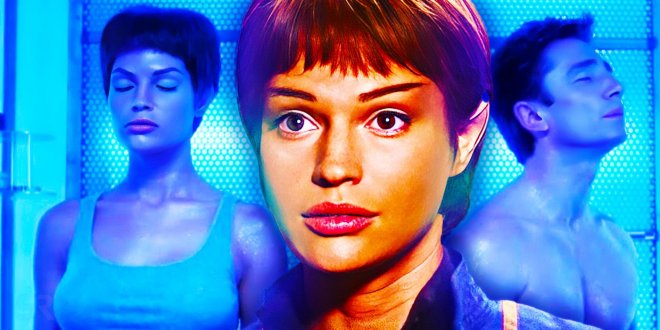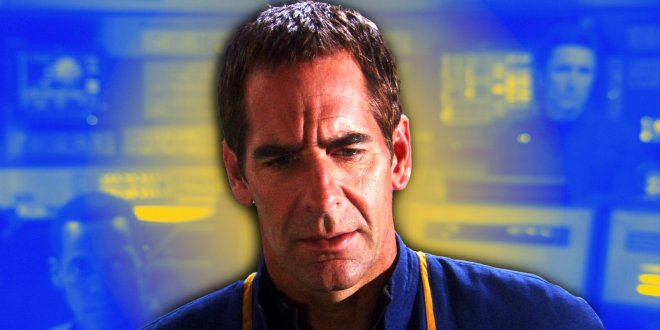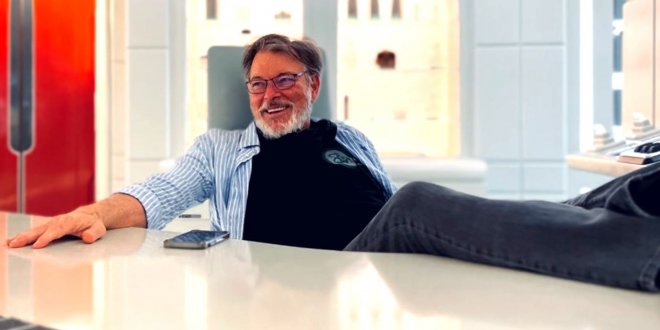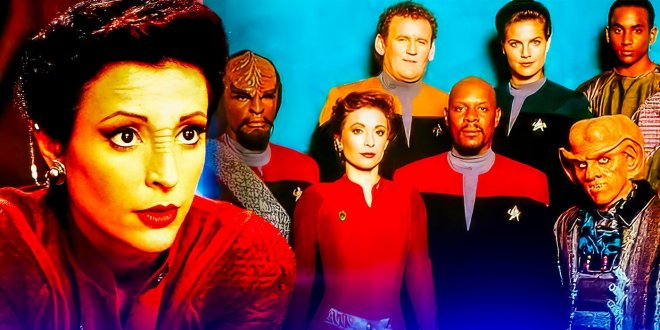Alex Kurtzman Talks Avoiding Star Trek Fan Service And Explaining Floating Nacelles In ‘Starfleet Academy’

Executive producer Alex Kurtzman has launched several Star Trek series over the past seven years, with another (Starfleet Academy) and a streaming movie (Section 31) on the way. These shows have spanned multiple time periods, including jumping the franchise forward into the 32nd century for Discovery, which will also be the setting for the Academy show. The producer is now talking about his approach to balancing references to previous Trek series, how they approach Starfleet tech in the 32nd century, and where he sees the franchise going in the future.
Kurtzman worries about “annoying” fan service
Over the last weekend, Paramount+ held an Emmy FYC event for Discovery and Strange New Worlds with Alex Kurtzman and VFX supervisor Jason Zimmerman, talking about the latest seasons of the shows. The event was moderated by Christian Blauvelt of IndieWire, who have released a video of the full talk (which you can see below). With the latest seasons of Strange New Worlds and Discovery putting the focus on the Gorn and the Breen respectively, Kurtzman responded to a question of how they approach making references to elements of Trek lore to fit within the new stories:
“There are lots of conversations in the writers room about [if a Trek reference is needed for the story]. And if you take on something like the Breen, and there was obviously a lot of mystery about the Breen. What do they look like? You have to be able to answer that question, but you also have to choose the Breen because they operate a certain way that works for the story. It was perfect for Bonnie and Clyde story. It was very interesting to make L’ak part of part of the Breen and understand what that culture was suddenly all about. So it wasn’t really just fan service. I think typically fan service can be very annoying. If you do it wrong and you’re sort of tipping your hat to it, but you’re not actually giving it any depth, it actually feels weirdly like it achieves the opposite of what you’re intending to do. So you really need to come up with a very strong reason to do it.”
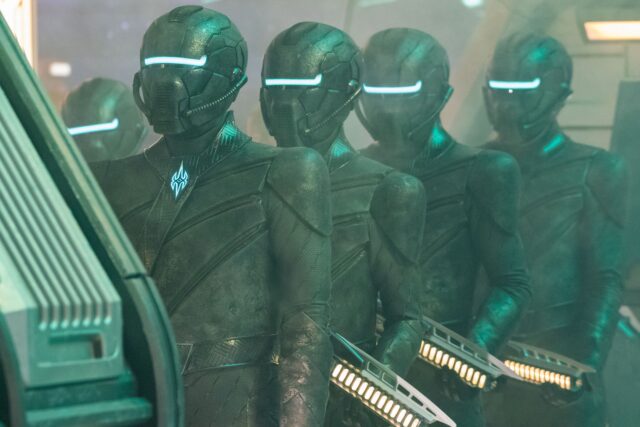
Breen in Star Trek: Discovery episode 509 (Michael Gibson/Paramount+)
Explaining 32nd century tech
Discovery jumped into the 32nd century for its third season, introducing fans to a whole new era, complete with new designs for Starfleet and beyond. Kurtzman talked about how they have (and will) approach the future tech behind these designs:
“There’s an army of people who pour over every aspect of every season so you’re always looking for what was the last, closest era? What did we see there and then how would we evolve from there? The continuity from Enterprise all the way to Discovery – you want to feel that each show in some form is represented in the sum total of what Discovery looks like or what anything in the 32nd century looks like. We took a risk in the 32nd century because we started separating the ship parts in a way that hadn’t been done before. And in Starfleet Academy we will end up explaining how that works. Which is actually interesting, because one of the questions that we always ask ourselves is: What is the reality of this? It can’t be magic? So, what is what’s actually going on there?”
The YA-focused Starfleet Academy series is set to go into production at the end of this summer in Toronto. Paramount+ just announced Paul Giamatti has joined the cast as the main villain for the first season, joining Holly Hunter, who is playing the chancellor of the Academy.
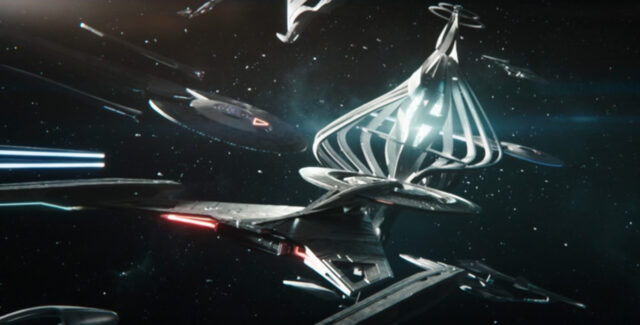
Starfleet in the 32nd century
Limitless storytelling for Star Trek Universe
At the start of the panel, Kurtzman reflected on the journey that started with the launch of Discovery in 2017 and how he sees more opportunities for the Star Trek Universe:
It’s been an amazing, incredible ride for everybody. I don’t think we envisioned when we started Discovery that it was going to become six television shows and a movie. And I think as a fan of Star Trek to to be able to see so many different corners of the universe expanding and expanding, what it’s only affirmed for me is that it is one of those truly rare and precious gems. That it’s is a limitless well of storytelling to draw from. You could go on forever and ever and ever. And so then the question becomes: how do you do it and how do you keep it fresh and original? And how do you make sure that each show feels different from every other show. But it’s been a total joy and amazing, you know, partnership with so many extraordinary artists.
The panel wrapped up with him responding to a question on where he sees things in five years, Kurtzman said:
My hope is that the [Star Trek] Universe can continue to grow, but that it will only grow if we have new stories to tell and ways to innovate Star Trek. That’s really all I care about, honestly. The journey has been wonderful, but it’s also been – as the cliché says – the destination. Because making the shows, as hard as they are, is such a joy. Fundamentally, we get to do such exciting things creatively. Firstly, I hope five years from now the world is less bumpy. I’m not confident that that will be the case, but I really hope that it is. And if it is less bumpy, then maybe Star Trek will get a little more boring, which wouldn’t be a bad thing, because we wouldn’t have so much conflict to have to interpret. I hope that Star Trek can continue to be the lens that allows us to understand who we are.
That last bit of him joking about Trek becoming boring refers to earlier remarks he made about how he has tried to carry on Gene Roddenberry’s “perfect template” of using science fiction storytelling as “an allegory or metaphor for what’s going on now.”
Watch full panel
Here (via IndieWire) is the full Paramount+ FYC panel with Alex Kurtzman and Jason Zimmerman…
